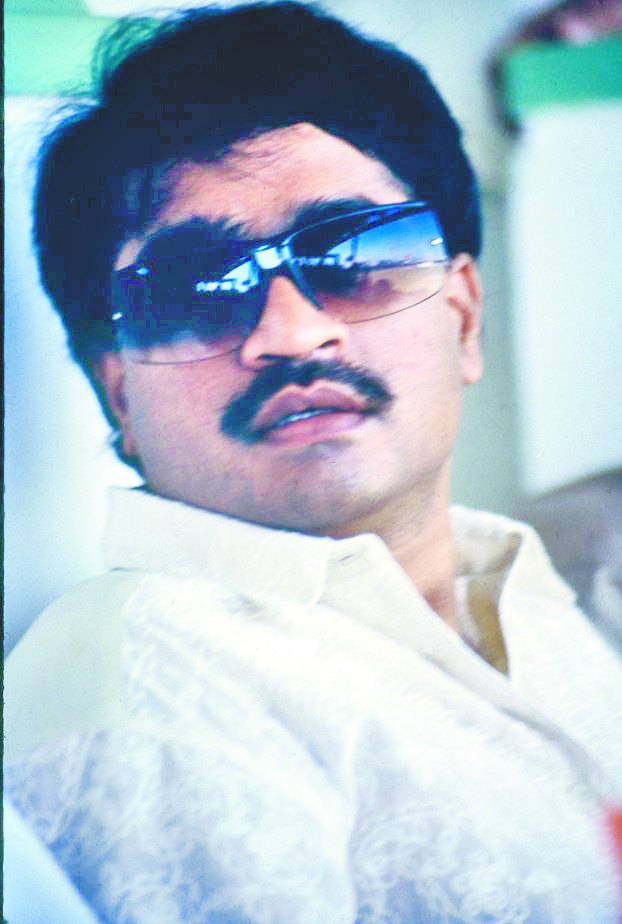New Delhi, June 14: The brouhaha over Sushma Swaraj's questionable role in helping cricket baron Lalit Modi to secure temporary travel documents in Britain is a case of history in this country repeating itself periodically.

Foreign governments have been used for decades to the spectacle of the wheels of Indian justice moving in one direction even as the executive - rarely without political sanction - moves in the exact opposite direction when it comes to showing consideration to fugitives from the country's own laws.
After murder charges were slapped on Dawood Ibrahim in 1984, the Mumbai gangster who was then only a don in the making, fled not to Dubai, but to Ajman.
This small Gulf emirate has no oil and in the 1980s made its living by selling group visas through agents to expatriates from South Asia, who would enter the United Arab Emirates through Ajman and then seek their fortunes elsewhere in the UAE.
Ajman's other source of income was sale of alcohol, an enterprise that was controlled by an Indian tycoon in Dubai, a business that thrived especially after neighbouring Sharjah imposed total prohibition and another emirate, Ras al Khaimah, took Saudi Arabian money in return for closing down the only casino in the UAE and embracing a more puritanical Wahabi lifestyle. Dawood's Indian passport was up for renewal shortly after he arrived in Ajman. When he sent it up to the Indian consulate-general in Dubai, the consul (visa and passports), S.P. Srivastava, opposed the renewal, cabled New Delhi for permission to confiscate the passport and sought its revocation.
With the passage of time of about three decades, it can now be revealed that Srivastava was an undercover diplomat in this consulate: he belonged to the Indian Revenue Service and so had a better understanding of Dawood's criminal enterprises than Indian Foreign Service officers. Srivastava, who came to command great respect among security agencies in all the northern emirates, told this correspondent, who then lived in Dubai, that he was overruled by New Delhi in the Dawood case.
It is moot if Dawood would have grown into the underworld king that he became after shifting to Dubai some years later if his travel document had not been renewed at that time and if he had remained stateless in Ajman or unable to go anywhere else. The don allegedly acquired a Belize passport later and the Pakistanis wooed him into collaborating in conspiracies which led to the serial Bombay blasts in 1993. The rest, as they say, is history.
If flies had nine lives, like the legend about cats, those on the walls of the external affairs minister's South Block office would have remembered that 23 years ago, one of Sushma's predecessors faced a predicament very similar to her own.
In early 1992, Madhavsinh Solanki travelled to Berne to meet his Swiss counterpart, Rene Felber. At the end of their meeting, Solanki gave Felber an aide memoire which stressed that the Swiss need not hurry with any investigation they were doing about allegations of bribery in the sale of Bofors guns to New Delhi because the subject "did not enjoy much of a priority with the Government of India".
Some of the Bofors pay-offs were allegedly parked in Swiss banks. The Hinduja brothers, who were charged in the case and later exonerated, have business interests in Switzerland and have homes in the country.
When news of the aide memoire leaked, Solanki initially denied the incident. Then he argued that the document was given to him by a lawyer whom he failed to identify and that he did not know its contents. After days of saturation media coverage, Solanki resigned.
One of those accused in the gun purchase scandal was Win Chadha, the agent of Bofors. His passport was confiscated, unlike Dawood's and later revoked. But a slew of diplomats in Dubai and Abu Dhabi at that time told this correspondent that visiting ministers from New Delhi made it clear to the royal families in both Dubai - where Chadha lived as a fugitive from justice - and in Abu Dhabi, the UAE's federal capital, that New Delhi had no intention to hunt Chadha down or seek his repatriation to India. But officially, the position was that Chadha was a wanted man in India to face justice, like Lalit Modi now.
In 2000, Chadha was given a travel document on humanitarian grounds and allowed to spend his last days in India. He died a year later in New Delhi.
If Sushma survives the current challenge to her continuance in government, she may want to reorder the parameters of impropriety in such cases. The Lalit Modi case may not meet such standards but India’s yardsticks for defining fugitives are archaic.
This correspondent knows of a famous New Delhi-based journalist whose septuagenarian uncle applied for an Indian visa abroad. He was repeatedly denied permission to travel to India. Because this journalist had influence, he found out from the Union home ministry that his visa was being refused as he was on the Indian government’s blacklist.
This was puzzling because the uncle had left India shortly after Independence and had never returned. He was not involved in any activity prejudicial to India. The journalist finally discovered that the uncle was a freedom fighter and the British had blacklisted him as a terrorist and a traitor.
Freedom had come to India but this man continued to be a terrorist and a traitor on home ministry files, and therefore, not eligible for an Indian visa.Thereby hangs a tale, which the NDA government may well want to incorporate into its experience while analysing the fallout of the latest Lalit Modi saga.










